- Home
- slideshows
- Trump’s impeachment leaves a lot of unresolved issues on the table for India
Trump’s impeachment leaves a lot of unresolved issues on the table for India
H1-B Visa applicants may expect fewer rejections without Trump as President

A stronger dollar, weaker rupee will make oil more expensive for India
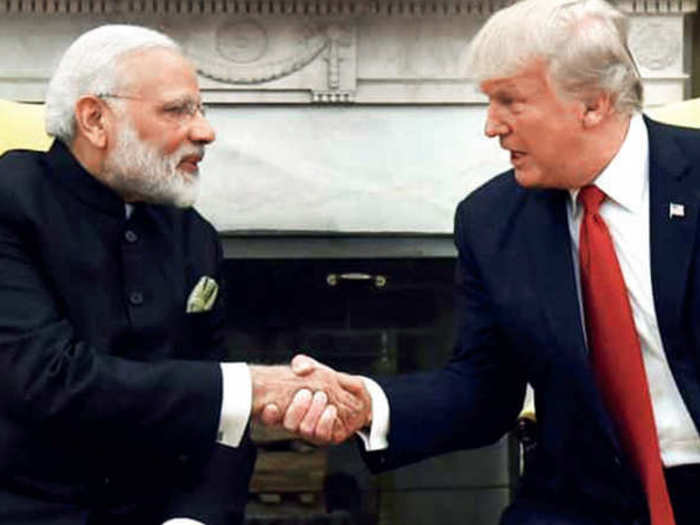
US President Donald Trump and Indian Prime Minister Narendra Modi shake hands after bilateral negotiations (Source: IANS)
According to India Infoline, global investors are hiding behind the American dollar — seen as the safest asset alongside gold in riskier times — as the Trump impeachment marks the beginning of uncertainty in the world’s largest economy, and therefore in the global economy at large.
As American politics play out over the next few weeks, the dollar may only grow stronger as the rupee simultaneously weakens. A stronger Dollar cuts both ways for the Indian economy.
Firstly, oil becomes more expensive for a net-importer like India. It is expected to further slow down the country’s growth and push inflation up as per India Infoline’s report.
Trump leaving office will be good news for Indian exporters
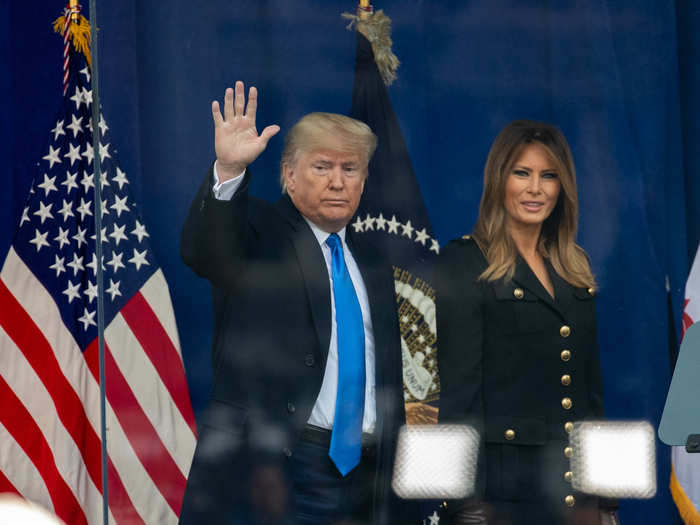
US President Donald Trump with wife Ivanka Trump leaving the Veterans Day Parade (Source: IANS)
On the other hand, a weaker rupee will make Indian exports competitive, especially for software exporters like Infosys, TCS, and truckers like Bharat Forge, and many others across sectors that supply to the US, the world’s largest consumer.
There may also be a thaw in the trade ties between India and the US. Currently, India is blacklisted from the US Generalised System of Preferences (GSP) hurting the automobile and organic chemicals industries. The US justification for the restriction as India was not providing “equitable and reasonable access” to its markets.
In retaliation, India hit back with tariffs on 28 products including almonds, the largest Indian import from the US, to offset the loss of increased steel and aluminium tariffs — which were also increased by the US.
But it also casts a shadow on India’s trade deal with the US. Despite his frequent acrimonious comments, in September 2019, Trump announced that the US was working on a trade deal with India. Any change in the country’s stance — either in terms of the trade deal or the existing tariffs — is unlikely before the next administration takes over.
Indian drug makers likely to deal with the price crunch in the US for a while
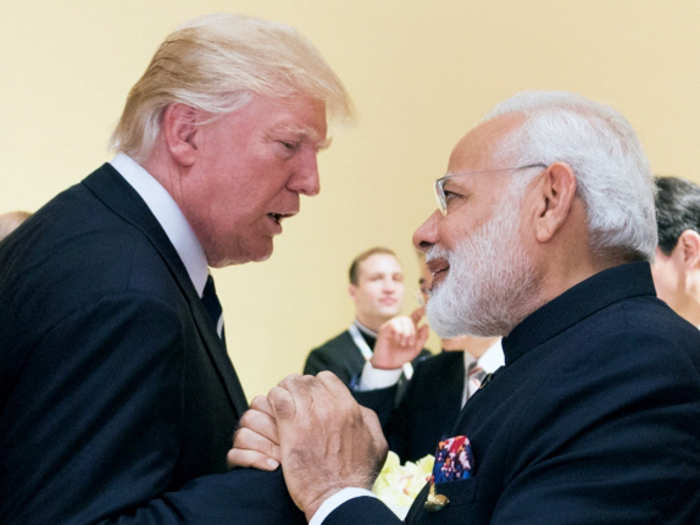
US President Donald Trump and Indian Prime Minister Narendra Modi during the latter's visit to the US (Source: IANS)
Trump took an especially hard stance against drug imports. India pharmaceutical companies have long been trying to lobby for easier terms of trade for drug exports. But, according to a report by Trump administration, India is among the top 20 major drug transit or illicit drug-producing countries around the world.
The US Federal Drug Administration also adopted a policy of allowing more generic versions of off-patent drugs to bring the prices down in America. That led to severe profit squeeze for Indian drug exporters, whose biggest market is the US.
While the American rhetoric against drug prices may be toned down after Trump, it is unlikely that the USFDA will roll back its policy in a hurry.
Trump’s exit from White House will affect trade talks with China
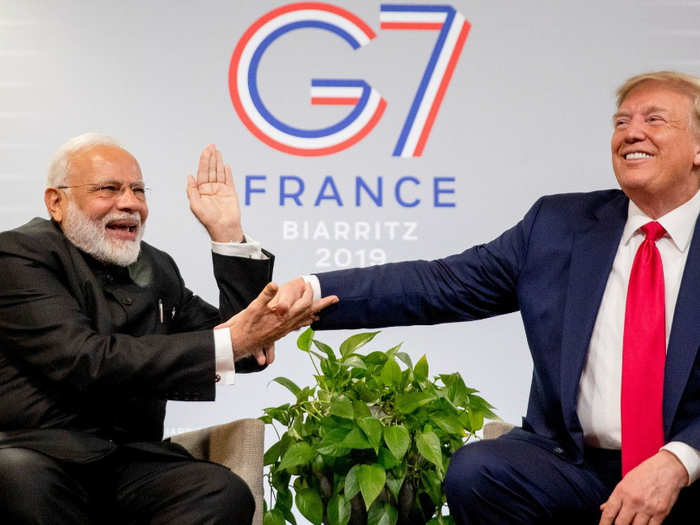
US President Donald Trump and Indian Prime Minister Narendra Modi in bilateral talks at the G7 Summit in France (Source: IANS)
Trump’s tirade against China and the trade war that followed had brought global economic activity to a near grinding halt. Global economic growth forecast for the current year was cut by the IMF to 3.3% citing the damning impact of the trade war.
However, by the time of his impeachment, Trump administration had already agreed upon the first phase of the trade deal with China. If Trump is gone, then the next steps in the trade talks with China may move faster or slower depending on who takes over. But global market sentiment may get a boost as investors hope for improved global trade in the absence of Trump’s ‘America First’ rhetoric.
As Hal Brands, a professor at the John Hopkins University argued earlier this year, ‘every President since Ronald Reagan has been wrong about China’. But what this also shows that every American President in the last forty years has been worried about China’s growing clout.
For India, the impact will cut both ways. In the short term, it will benefit from improved global market sentiment and better demand for its exports. But in the long run, the US-China trade war had offered an opportunity for India to present itself as a credible alternative to China as an investment destination and build scale as an exporting nation.
From one President to the next
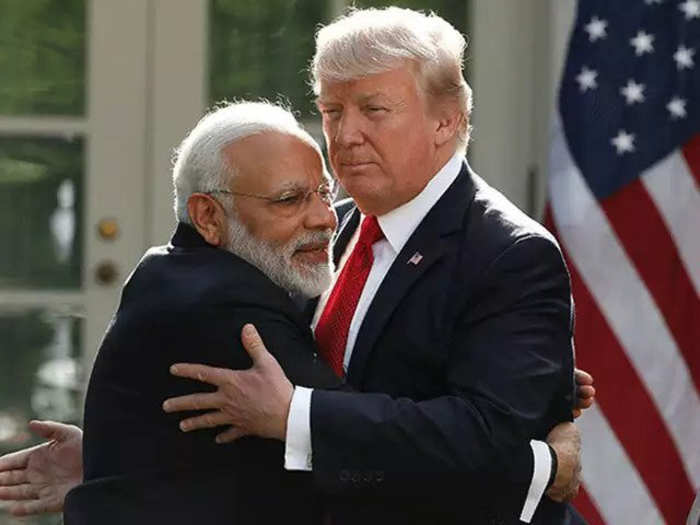
US President Donald Trump and Indian Prime Minister Narendra Modi embrace after press conference (Source: IANS)
Experts believe that Trump’s impeachment is unlikely to affect relations between the two countries. “There is very little appreciation in India of the internal dynamics of US politics, just as people in the US don’t appreciate India’s internal politics,” Varghese George, author of a new book on US-India relations under Modi and Trump, told The Washington Post.
He also pointed out that since a large number of Parliament members in India have faced criminal charges at one point or another, they’re not an easy crowd to shock. “They won’t be bothered about it at all,” said Manoj Joshi with the Observer Research Foundation (ORF), a think tank based out of New Delhi.
While Trump may have made the call for ‘America First’, his rivals — even from the Democratic Party — have used different words and slogans. But, in essence, they all have a protectionist stance on trade and foreign policy. So, even a change of guard at the White House may not alter the dynamics significantly, at least not anytime soon.
The issue of Kashmir
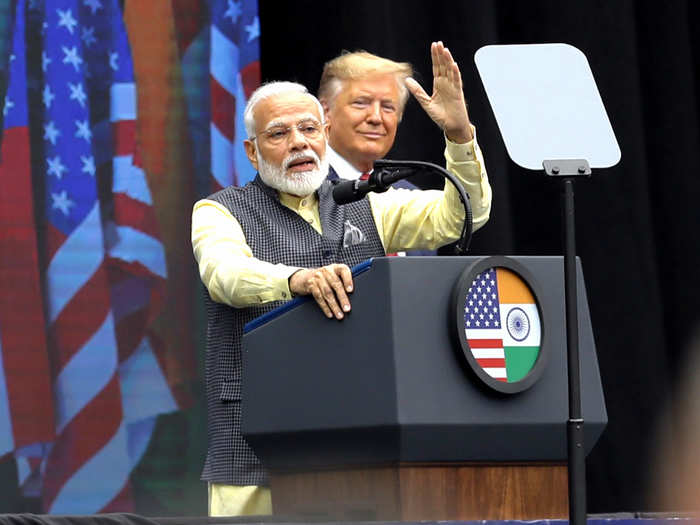
Indian Prime Minister Narendra Modi addresses 'Howdy Modi' rally in US as US President Donald Trump peers from behind (Source: IANS)
One of the things that both Modi and Trump agreed upon was their perceived threat from ‘Islamic terror’. So while there were pressures from many quarters in the global community, India had the tacit support of the Trump administration when the Modi government revoked Article 370, which the state of Jammu and Kashmir a ‘special’ status.
It’s more likely that the US will steer clear of the dispute between Pakistan and India over Kashmir. Earlier this year, Trump claimed credit — something that the Indian government categorically denies — for defusing a conflict when the Indian air force struck Balakot on the Pakistani side of Kashmir as a retaliation to a terror attack two weeks earlier.
At the same time, Trump’s comments, and conversations with Pakistan Prime Minister Imran Khan, have not gone down well with Indian officials and members of the country’s Parliament.
The issue of the Russian S-400 missile system
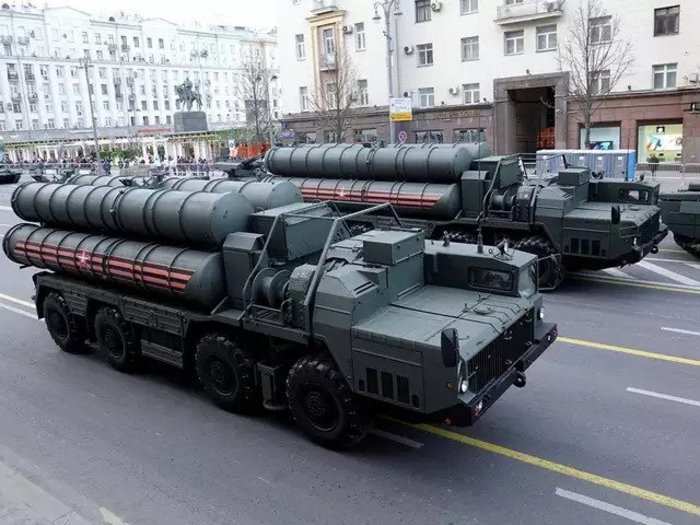
S-400 missile system (Source: BCCL)
Though Trump is seen to be Russia’s most friendly American President in a long time, the US government under Trump did not react well to a defence deal between India and Russia.
India has always bought big-ticket defence technology from Russia, including the recent order of the S-400 surface-to-air missile system. And, every country that’s ever contemplated ordering one has been threatened with diplomatic retaliation by the US like the ongoing rift with Turkey.
So when Modi announced his deal with Russia, the Trump administration warned that sanctions could be imposed under the Countering America’s Adversaries Through Sanctions Act (CAATSA), which restricts defence purchases from Russia, Iran and South Korea.
The Obama experience
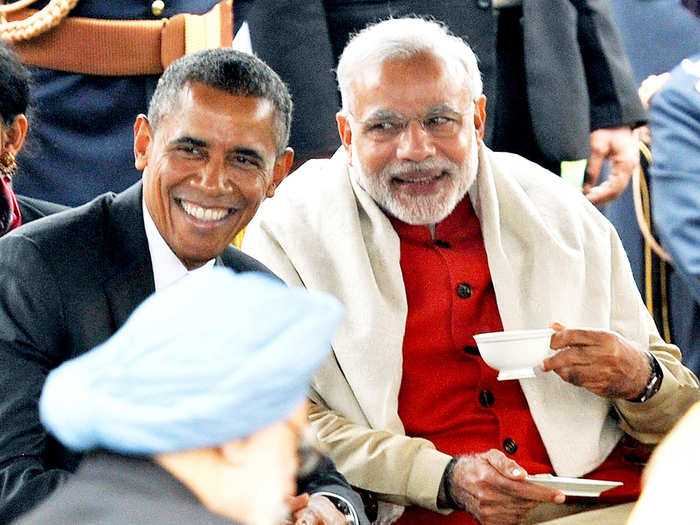
Former US President Barack Obama and Indian Prime Minister Narendra Modi share a cup of tea (Source: BCCL)
Modi had struck a friendly chord even with Trump’s predecessor; he even called him his ‘good friend, Barack’.
When the White House went from Obama to Trump, India gained on certain issues and lost ground on a few others. The same is likely to happen if there is a change of guard again. It’s unlikely that the US government’s stance will drastically change — not until the 2020 elections anyway.
See also:
The impeachment drama has shown how broken Congress is, and Trump is taking full advantage
READ MORE ARTICLES ON
Popular Right Now
Popular Keywords
Advertisement